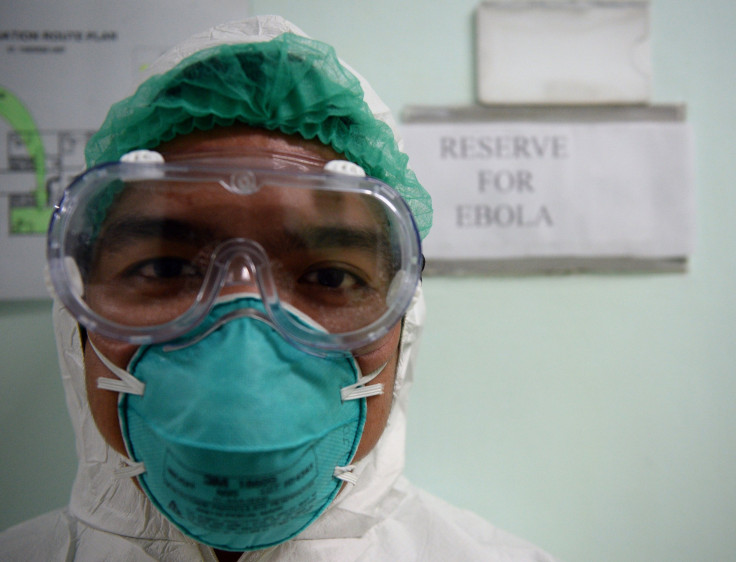Ebola Outbreak: Demand For Protective Equipment In Hospitals Increase Amid US Ebola Fears

Producers of protective gear that are used by medical staff treating Ebola patients are hiring more people to help double production to meet increasing demand from U.S. hospitals. The gowns and full-body suits help prevent the spread of the virus, which has so far infected nearly 9,000 people, most of whom caught the disease while caring for Ebola patients.
Hospitals reportedly say that they already have proper equipment in place but are ordering more to prepare for possible new cases of Ebola. Concerns over the deadly virus intensified in the U.S. after two health care workers contracted Ebola earlier this month while attending to Thomas Eric Duncan, who later died of the virus in a Dallas hospital.
"We're up ten-fold, if not 20-fold, from this time last year," Tony Baumgartner, president of DQE Inc., an Indiana-based emergency services company, said, according to The Associated Press, or AP. He added that full-body suits are currently in demand from concerned hospitals that are ordering hundreds of suits.
"The order volume, the number of orders, has just been overwhelming," he told AP.
On Monday, the U.S. Centers for Disease Control and Prevention issued new guidelines after the Dallas hospital was criticized for not following the correct protocols in dealing with the virus. The CDC announced that health care workers will now be required to be fully covered while treating patients with Ebola or those suspected of having the virus.
"We had an ample supply to cover us in each of our hospitals with any immediate emergency situation," Michael O'Farrell spokesperson for the Lawrence and Memorial Hospital in New London, Connecticut, said Monday according to AP. "But in preparation mode we ordered more to have on hand, just in case."
The Cleveland Clinic, which is part of a network of hospitals monitoring five health care workers who were on the same flight as a nurse who contracted Ebola from Duncan, said that they have seen delays in shipments of new supplies of equipment from manufacturing units, The New York Times reported.
“We don’t have everything we need yet, but I have not heard from our leadership or anyone that there’s a panic that we’re not getting what we need,” Eileen Sheil, a spokeswoman for the clinic, said, according to The Times.
An informal survey, conducted by AP, found that only two of the 120 hospitals it spoke with had some extra protective gear in stock. It also found that a vast majority of the hospitals, of varying sizes across the country, had full-body gear, while only 10 hospitals said that their equipment left some skin exposed, but intended to upgrade their protective gear.
© Copyright IBTimes 2024. All rights reserved.











